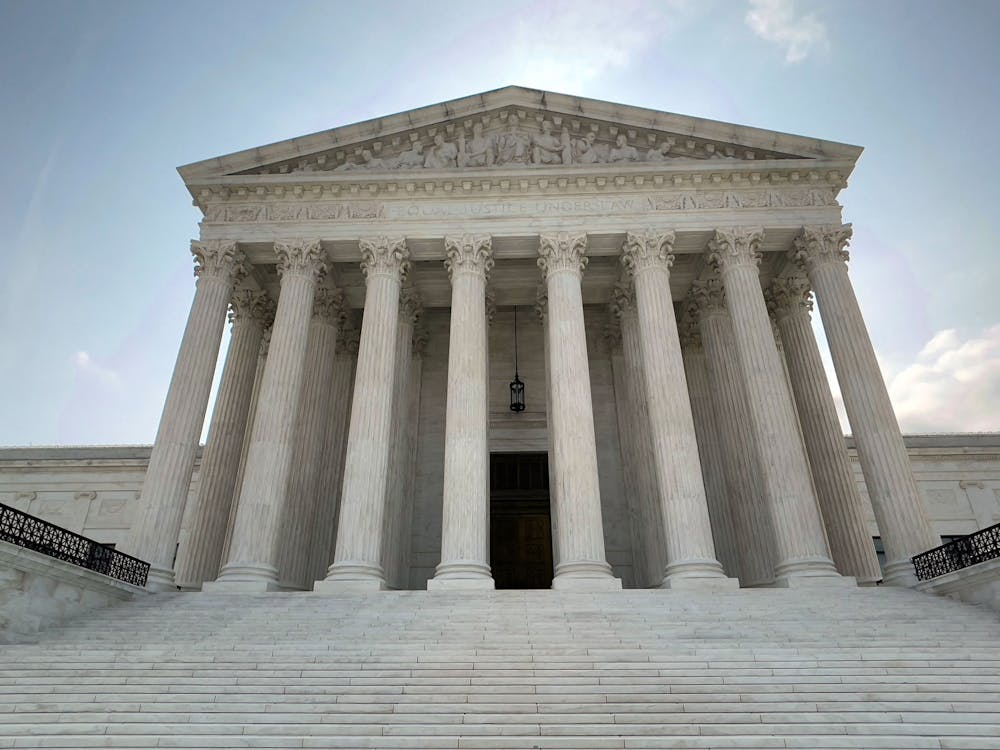From a technical standpoint, Muller said, the fact that the Supreme Court has agreed to hear the UNC and Harvard cases means that there are at least four justices who believed the issue to be worth revisiting. The court reaffirmed the practice of using race as a factor in college admissions as recently as 2016 in the Fisher v. University of Texas case.
In that case, the Supreme Court found the use of affirmative action to be constitutional, provided it was narrowly tailored for the compelling interest of promoting educational diversity.
Traditionally, the Supreme Court takes cases when there is going to be a change of precedent, Osamudia James, a law professor at UNC said – and the court’s current conservative majority is a sign that a change in precedent may occur.
“There is now a majority of justices that feel differently about affirmative action in general and the diversity rationale in particular,” James said. “And so, the fact that they're willing to hear it less than six years since the last time it was heard signals a change is on the horizon.”
The phrase “narrowly tailored” refers to the Supreme Court’s tiered review system of discrimination cases. Cases involving alleged racial discrimination are looked at under strict scrutiny – James said that race must be used in a specific and limited way that impacts as few people as possible, while achieving a compelling state interest.
And diversity is one of the few “compelling interests” that has been accepted by the Supreme Court precedent as sufficient reason for involving race in admission policies – at least for now, James said.
“If the court decides that diversity is no longer a compelling interest, you're not justified in using race in pursuit of that compelling interest anymore,” James said.
Case history and differences
SFFA alleged in its original complaint against UNC that the University’s practice of using race as a factor in admissions decisions violates the Equal Protection Clause of the Fourteenth Amendment.
The complaint in the Harvard case is slightly more particular, alleging that Harvard’s admissions practices discriminate against Asian American applicants specifically.
“It's the presence of Asian Americans as a plaintiff group or a party that's been harmed that makes the cases new,” James said.
The United States District Court of the District of Massachusetts ruled in favor of Harvard in Sept. 2019, asserting that Harvard does not intentionally discriminate against Asian American applicants.
To get the day's news and headlines in your inbox each morning, sign up for our email newsletters.
Two years later, in October 2021, the United States District Court for the Middle District of North Carolina ruled that UNC’s admissions process was largely holistic and that its use of affirmative action was consistent with Supreme Court precedent.
“When UNC does consider race, it does so only alongside all other factors," the University said in a July response brief. "As the district court found, readers do not evaluate candidates of different racial groups separately, nor does UNC impose quotas of any kind. UNC’s consideration of race is neither mechanical nor formulaic."
UNC Media Relations referred The Daily Tar Heel to the current admissions policy for information in reference to the case.
One small difference between the cases is that the universities are governed by slightly different laws in regard to to alleged discrimination. UNC is a public university and will be judged directly based on the Equal Protection Clause in the Fourteenth Amendment.
However, because Harvard is a private institution, it is not directly constrained by the Constitution – rather, it is bound by federal laws passed by Congress regarding discrimination.
“As a practical matter, I don't think that the (Supreme Court) is going to determine that that makes a big difference,” Muller said. “A differently configured court might conclude that there should be more room for private universities to engage in affirmative action than for public universities. But I doubt that this group of justices is going to be interested in making that distinction.”
@hannahgracerose
university@dailytarheel.com
CORRECTION: A previous version of this article misspelled law professor Osamudia James' name. The Daily Tar Heel apologizes for this error.




